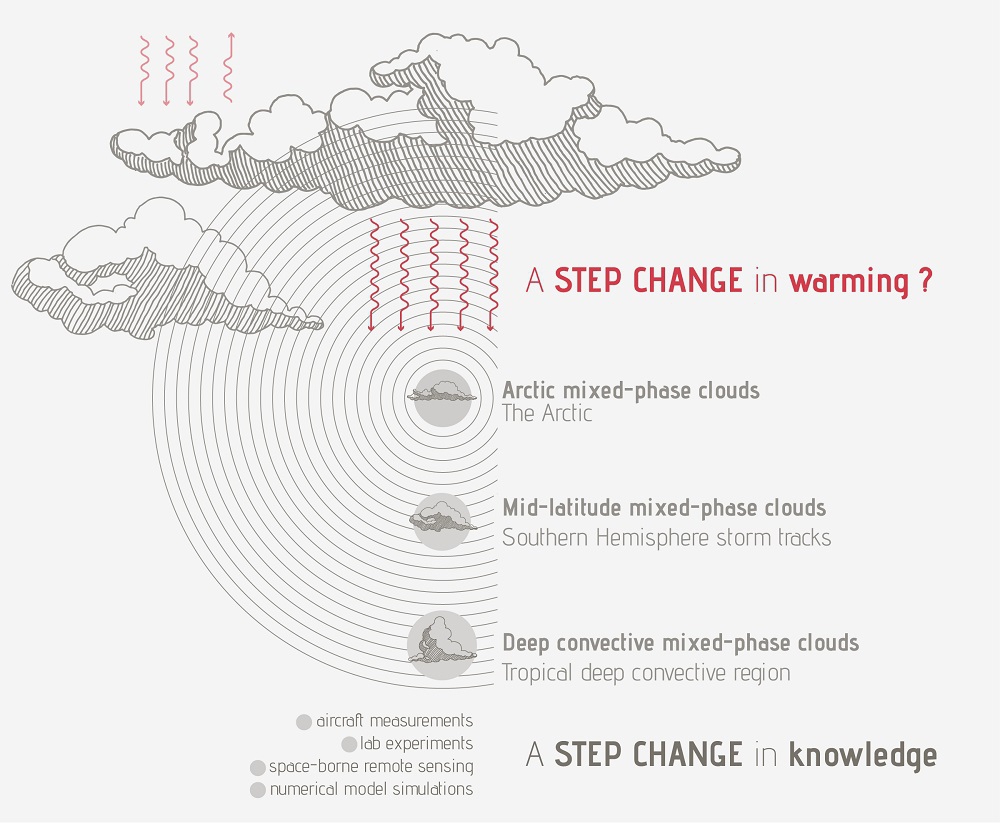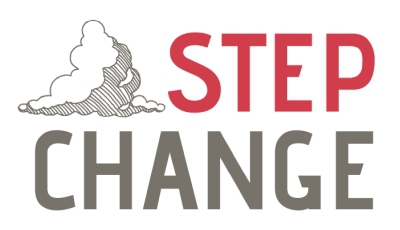About the project
The ways in which clouds change with global warming remain elusive, as are the associated cloud-climate feedbacks that govern most of the spread in climate sensitivity simulated by current Earth System Models. This uncertainty in turn limits society's ability to take necessary action to avoid dangerous climate change. Despite considerable research progress in recent decades, additional complexities have been uncovered that further add to the uncertainty. For example, the understanding that many cloud-climate feedbacks change with time, due to their dependence on warming levels or patterns, is relatively recent. Cloud thermodynamic phase changes are the root cause of some of this state-dependence, and new research has revealed that these feedbacks could shift Earth's climate into a state that is more sensitive to greenhouse gas forcing than at present.

Understanding and quantifying this state-dependence is therefore critically important, but such progress will require deep understanding of processes on a range of scales, from the microphysics that control cloud phase to large-scale impacts on climate.
Furthermore, it has become evident that different cloud-climate feedback regimes are governed by different processes with their own unique state dependence that must be investigated separately.
Objectives
The overall objective of STEP-CHANGE is to understand and quantify feedbacks associated with cloud phase changes, including their state-dependence, for three distinct cloud regimes in the following regions: 1) the Arctic, 2) the Tropical deep convective region, and 3) the Southern Hemisphere storm tracks. This will be achieved in STEP-CHANGE through a bold and innovative research strategy which includes aircraft measurements, lab experiments, space-borne remote sensing, and a hierarchy of numerical model simulations.
In the STEP-CHANGE project we build on recent discoveries and innovations within the PIs research group, and we are motivated by key knowledge gaps identified in recent IPCC assessment reports.
Financing
Full name of the project is 'STate-dEPendent Cloud feedbacks: enHANcing understanding and assessing Global Effects', shortened to STEP-CHANGE. The project is funded by the European Union under the agreement ERC; Consolidator grant, STEP-CHANGE, agreement number 101045273.
The project started 03.01.2023 with an end in 28.02.2028.
Disclaimer: “Funded by the European Union. Views and opinions expressed are however those of the author(s) only and do not necessarily reflect those of the European Union or [name of the granting authority]. Neither the European Union nor the granting authority can be held responsible for them.”

